Feudalism and Colonialism: The Case of the Philippines
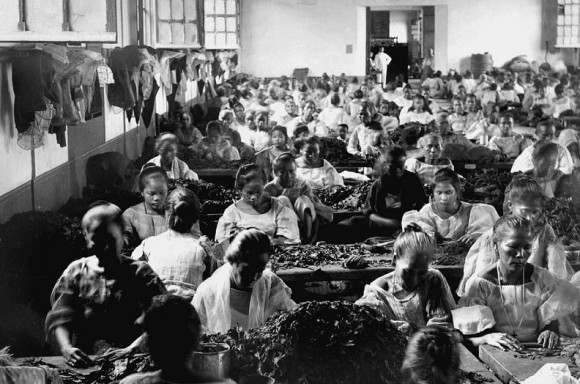 The Philippines has all the trappings of modern democratic mechanics — a superficial exterior institutionalized as official components of its politics — but the landscape of its realpolitik has been dominated for generations by socio-culturally feudal and economically colonial dynamics. The attitude of local elected leaders toward themselves reveals a common feudal character whose acquired meaning has seemed to be as natural as it is spewed with confident spontaneity: they are the “fathers” or the “mothers” of their respective constituencies — villages, municipalities, provinces, even the nation itself.
The Philippines has all the trappings of modern democratic mechanics — a superficial exterior institutionalized as official components of its politics — but the landscape of its realpolitik has been dominated for generations by socio-culturally feudal and economically colonial dynamics. The attitude of local elected leaders toward themselves reveals a common feudal character whose acquired meaning has seemed to be as natural as it is spewed with confident spontaneity: they are the “fathers” or the “mothers” of their respective constituencies — villages, municipalities, provinces, even the nation itself.
This attitude blots out something crucial: that in a genuinely democratic milieu, an elected local or national government leader is fundamentally a public servant. A democratic political culture indicates leadership by a public servant and not the father or mother of a local or national government unit. A patriarchal or matriarchal government unit is obviously feudal. Observations of the mode of political leadership in local government units further reveal how the chair of a barangay (originally a barrio within the jurisdiction of a pueblo or municipality or town), mayor of a municipality or city, or governor of a province acts and dispenses authority like a landlord — worse still, like a taskmaster who treats constituents as if they are tenants, vassals or slaves. The latter become beholden to those in power as this political relation is intensified socio-culturally by the value of utang na loob (or debt of gratitude) which is inherently and automatically spawned by this vicious, and hence corrupt, mode of power dispensation. The trail of corruption in government is thus initiated.
In this framework, corruption is no longer an appalling phenomenon but a logical corollary of a political culture where double-standard morality is well entrenched in the hands of feudal masters who cannot be immoral. In this condition they are the framers and definers, the interpreters and dispensers, of morality who, of course, naturally benefit from social and economic circumstances expressed according to their whims and wishes. This political morality directly affects the society’s economic facet. Economic advantages and opportunities are automatically bestowed upon, enjoyed and, in most cases, monopolized by the feudal elites, invincible in their coats of mail of power. This condition is controlled by a cabal that manipulates a locale’s economic ambiance. By and large, they call the economic shots, being in charge of the general run of businesses and practically all income-generating ventures, whether or not these enterprises are legitimate.
“Elected” officials need not always be members of the elite bloc. An outsider may be “elected,” as has happened many times, with logistical support by the syndicated alliance’s established machinery. This further cultivates the viciousness of utang na loob, as the “elected” official becomes constrained by circumstance to return the favors that sustained a nomination, campaign, and ultimate “victory.” In many instances, a coalition of businessmen with vast economic power exerts massive influence in the political field as king makers. The whole situation is constitutive of a system wherein the dynamics of feudalism sustain the mechanics of a capitalistic economy and politics that appropriate the nominal components of democracy. The entire scenario cordially accommodates a colonial condition wherein a foreign politico-economic power can legitimately gain a foothold in the domestic arena through a mutually beneficial partnership with local businessmen and business alliances that wield political power.
The feudal dynamics accommodate the legitimization of colonial — i.e., neo-colonial, to be more exact — presence through transnational investments monitored and safeguarded by well-placed “elected” local officials in executive and legislative branches of the government that serve the imperialist interest of foreign powers. Thus feudalism becomes wedded to colonialism in a marriage of convenience that is politically and economically empowering to both the local power elites and neo-colonial dominators: an unholy conspiracy that smashes to smithereens the sovereign foundation of a purportedly independent country.
Personality Politics Are Part of Feudalism
The evolution of political maturity in a social context runs from personality politics as the most primal, party politics in-between and program politics as the most mature. Philippine politics, in its 21st-century condition, is still dismally of the personality type. What distinctively stands out in this type of politics is the promotion of personalities over and above political parties and national development programs. Personality politics is characteristically feudal because in a feudal society, the person, achievements, exploits, authority and wealth of a feudal lord are utterly highlighted beyond anything else. Furthermore, local government officials exploit every possible and given opportunity to promote personal advantage in the political arena and in the process amplify political clout, to establish and perpetuate a political domain that outlives, not only their own political career but extends to their progeny, thereby engendering a political dynasty. This is definitely and absolutely a feudal state of affairs.
Pre martial-law Philippine politics saw the dominance of a two-party electoral scenario where the Liberals did battle against the Nacionalistas. But the whole situation was merely a semblance of true party politics, because what was actually highlighted was not the parties themselves and their respective platforms but the famous, even controversial, personalities within them as candidates who had achieved popularity of showbiz proportion. This is precisely why a prospective candidate could easily cross party lines.
Nothing has actually changed in post martial-law politics. In fact, more complications crept in as the two-party system became overshadowed by a multiple-party system bereft of solid and genuinely practicable pro-people development platforms. This state of affairs has actually demolished the preconditions of what should have been called party politics but has instead made personality politics rampant and hence institutionalized as the name of the political game in the present dispensation: a primitive type of politics in the post-modern Western world.
Colonial Economic Hegemony Supports and Relies on Feudalism
The power base of a “post-modern” feudal leadership is reinforced by its colonial alliance, which in the case of the Philippines is chiefly with the foremost global superpower, the United States of America. The US not only imposes its economic hegemony over the Philippines but also an intrinsically simultaneous political supremacy. The US Department of Defense housed at Pentagon as well as the US Central Intelligence Agency (CIA) constantly watch the Philippine political scenario to ensure that those positioned in the national government toe the US foreign policy line. This situation of brazen meddling is only one aspect of a larger political intervention of imperialistic magnitude, as the Balikatan military exercises (involving US military forces and the Armed Forces of the Philippines) continue on a regular basis through the blessings of the Visiting Forces Agreement (VFA) forged between the governments of the Republic of the Philippines and the US. The eminent US-based scholar, culture critique and political analyst, E. San Juan Jr, in his After Post-colonialism: Remapping the Philippines-United States Confrontations, remarks:
“The passage of the Visiting Forces Agreement (VFA) at the end of the twentieth century signifies not a ‘return of the repressed’ but a symptom of the loss of memory, a historical amnesia that disavows the unspeakable barbarism and carnage that masked itself in ‘brotherly spirit.’ For Filipinos, however, it is a ritual of trying to remember….”
In the guise of providing special training opportunities toward the modernization of the Armed Forces of the Philippines (AFP), the US contingents in the said military exercises also get themselves involved in actual counter-insurgency operations along with the AFP and in the process act as protectors of both the economic and political interests of the US in the Philippines. E. San Juan Jr, reminds us that
“Not yet a decade since the US military bases were forced to withdraw in 1991 by nationalist demand, the passage of the Visiting Forces Agreement (VFA) between the Republic of the Philippines and the United States in February 1998 marks the return of imperial power in a more total repudiation of Filipino sovereignty. . . . [T]he VFA grants the ex-colonizer extra-territorial rights and privileges exceeding the privileges that the United States once enjoyed in the day of the Laurel-Langley Agreement and parity rights.”
This is imperialism of the first order. In this sense, US colonial hegemony supports the local feudal power culture, on the one hand. On the other hand, the Philippine feudal order sustains the US capitalist requirements by providing the latter with raw agricultural, marine, forest, mineral, and even human-labor resources. Hence, the Philippine economy’s path toward capitalism is out of the question. In this regard, E. San Juan, Jr. observes: “What is at stake is really control over the natural resources and labor power of the Filipino people via the destruction of their national sovereignty and territorial integrity.”
It is the power of US imperial control that has kept Philippine economy retrogressively subservient to US colonial interests in a feudal socio-cultural environment. In other words, it is actually US imperialism (“the highest stage of capitalism”, according to Lenin) that has forced the Philippine economy to be colonial and remain socio-culturally feudal.
Radical Dismantling of US Hegemonic Control
The more enlightened sector of the population, which consists of the proletariat, the petit bourgeois professionals, academics and businessmen, the progressive segment of the clergy, as well as the small entrepreneurs advocating national industrialization, are the cutting edge to initiate and eventually realize a radical transformation of the socio-cultural and economic dynamics that animate the present state of affairs of Philippine politics. In operational terms, this radical transformation is systemic and structural, aimed at dismantling US hegemonic control over the Philippines as it becomes clearer that the most crucial issue at hand is the final and total achievement of the nation’s authentic sovereignty.
Before we get to the “how” and “when,” it is worthwhile to look in the international community for concrete models of erstwhile colonies: countries that have defied, resisted, rebelled, fought and finally triumphed over their former colonial masters and are now sovereign in the most realistic sense of the word. It is of prime significance to realize that the revolutionary actions that lead to the final emancipation of a nation do not necessarily start off with the daring guts of a people but with a pure inspiration from which genuine courage astonishingly develops even from the basest case of utter cowardice.
Editor’s Notes: Ruel F. Pepa is a retired university academic in the fields of philosophy and cultural studies. He was born and raised and spent most of his life in the Philippines. He is currently based in Madrid, Spain. Photographs one, two, three, four, five, six, seven, eight, nine, ten, eleven, twelve and thirteen from John Tewell‘s historical archive collection.
Related Articles

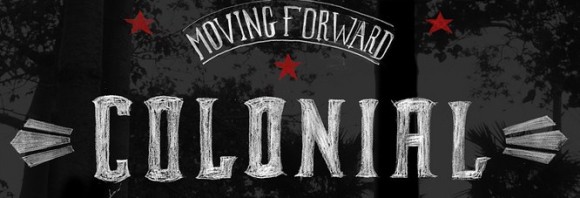
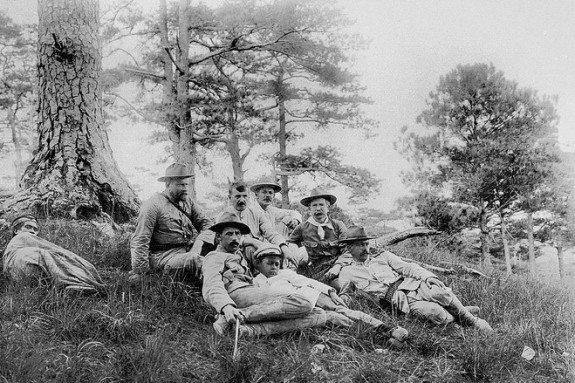
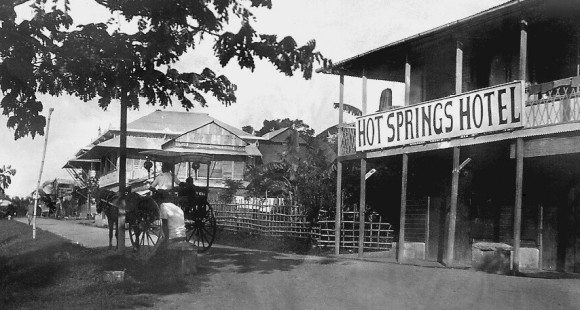
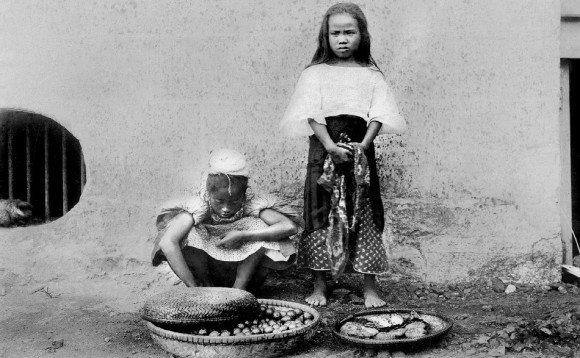
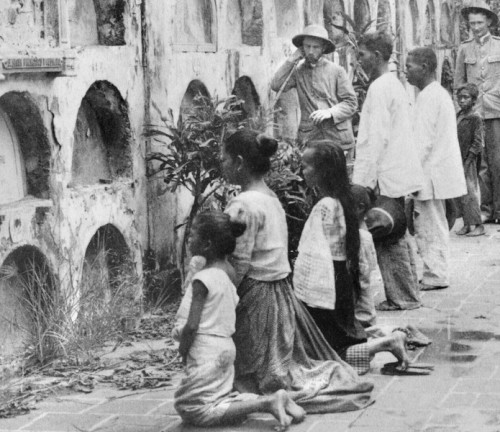
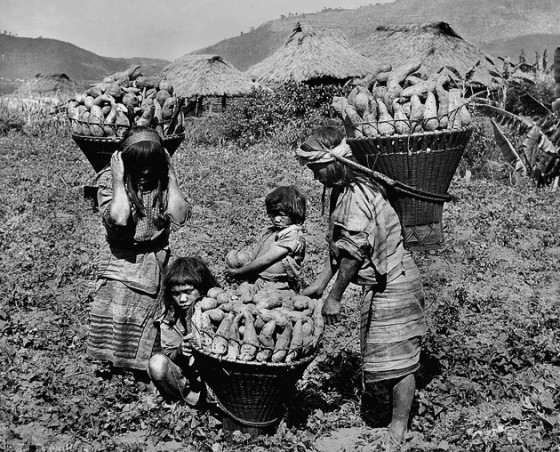
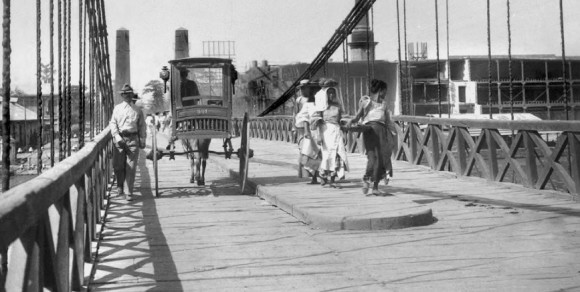
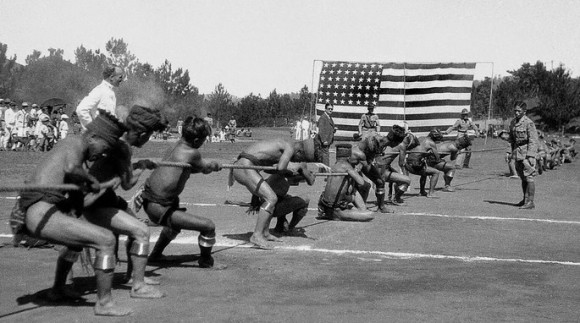
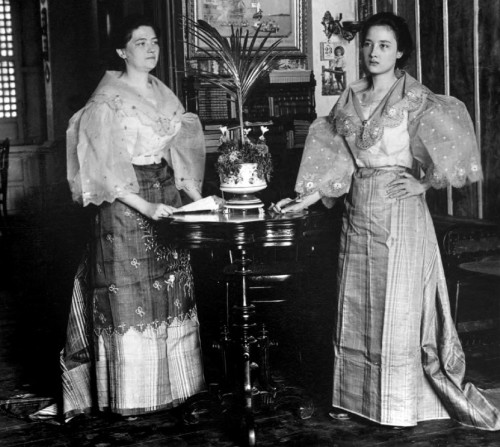
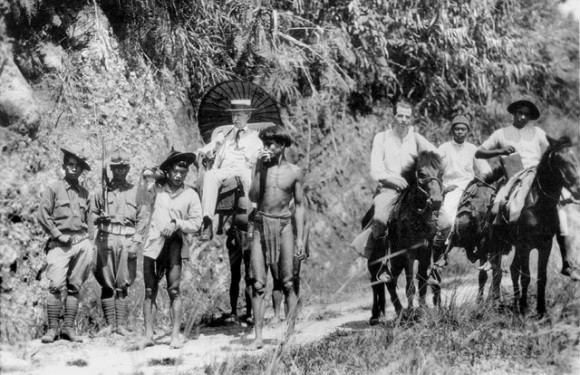
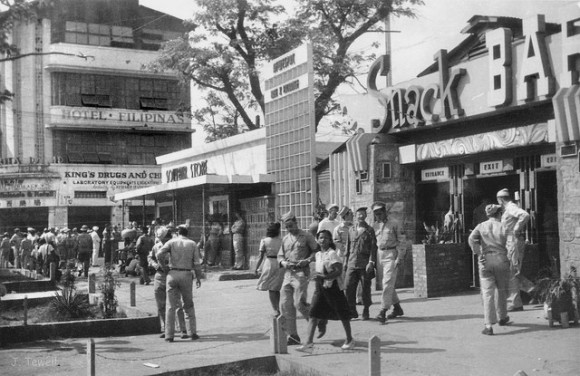











You must be logged in to post a comment Login